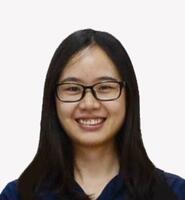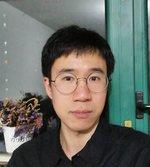The Evergrande Center supports Chinese scientists, scholars, and physicians who spend time in laboratories at Harvard Medical School and Brigham and Women’s Hospital. Harvard’s established protocol for facilitating the healthy acclimation of international students to their new homes remains a tremendous, vital strength. Efforts to ensure proper orientation to the campus, city, and culture for the benefit of international students have a tremendous impact on the preparedness and comfort of our exchange students and fellows.
Current Evergrande Scholars:
 Dandan Yang, PhD joined Dr. Anderson’s lab in Feb 2020, after her PhD training at the Institute for Immunology of Tsinghua University, Beijing, China, where she worked on the function of Bcl10 in anti-viral innate immune signaling and regulatory T cells. At the Evergrande Center, Dr. Yang focuses on understanding the mechanisms of steroid hormone regulation of immune responses in autoimmunity and cancer.
Dandan Yang, PhD joined Dr. Anderson’s lab in Feb 2020, after her PhD training at the Institute for Immunology of Tsinghua University, Beijing, China, where she worked on the function of Bcl10 in anti-viral innate immune signaling and regulatory T cells. At the Evergrande Center, Dr. Yang focuses on understanding the mechanisms of steroid hormone regulation of immune responses in autoimmunity and cancer.
 Peng Xiao, PhD is an Assistant Professor at Zhejiang University School of Medicine, China, where he used genetic mouse models to study the role of IL-10 signaling in macrophages during colitis. Dr. Xiao will join the Nowarski lab in July 2019 to study the role of macrophages in regulating intestinal inflammation, and in particular how inflammatory macrophages regulate intestinal barrier function during colitis.
Peng Xiao, PhD is an Assistant Professor at Zhejiang University School of Medicine, China, where he used genetic mouse models to study the role of IL-10 signaling in macrophages during colitis. Dr. Xiao will join the Nowarski lab in July 2019 to study the role of macrophages in regulating intestinal inflammation, and in particular how inflammatory macrophages regulate intestinal barrier function during colitis.
Previous Evergrande Scholars:
Zhuoran Yin, MD, PhD entered Dr. Weiner’s Lab in April 2018, after completing her doctoral work in Neuroscience focusing on microglia phenotypes in aging-associated diseases at Groningen in the Netherlands. Dr. Yin was specifically interested in regulating microglia phenotypes in neurodegenerative diseases. She worked to target mIR155 and APOE pathways in microglia to restore dysfunctional microglia in Alzheimer’s disease (AD), which might be a treatment for AD.
Yiqing Yan, PhD joined the Benoist/Mathis lab in May 2017, after training in Hefei, China, where she did some important work on the NLRP3 inflammasome in connection with neurotransmitter signaling. At the Evergrande Center, Dr. Yan is focusing on anti-inflammatory pathways in the colon, related to IBD and colorectal carcinoma, analyzing the interactions between the enteric nervous system and T regulatory cells.
Shuming Xianyu, MD joined the Evergrande Center as a Visiting Scholar in January 2018. Previously she was the Director of Infection Management Quality Control Center and Director of the Office of Hospital Infection Control at Hainan Provincial Hospital. She was Chairman of the Committee of Nosocomiology for the Hainan Medical Association since 2012. Dr. Xianyu is a National Committee Member of the Medical Waste Management Professional Expert Group, and the National Health and Family Planning Commission of the People’s Republic of China. She is Professor of Pediatrics in the Department of Neonatology at The People’s Hospital of Hainan Province. Dr. Xianyu joined the Evergrande Center to take part in research programming, learn about standard operating procedures of clinical sampling and studies, and to promote the collaboration and communication between the Evergrande Center of Immunologic Diseases at Harvard Medical School and Brigham and Women’s Hospital and Hainan Health Care institutions.
Yanbo Zhang, PhD performed his doctoral work in cell biology with a concentration in immunology in 2014 from the Shanghai Institute of Biochemistry and Cell Biology of the Chinese Academy of Sciences. In his work in the Benoist/Mathis laboratory at Harvard Medical School, Dr. Zhang applied his cellular and molecular skills to the study of regulatory T cells using state of the art genetic engineering.
Xin Chen, PhD in the Benoist/Mathis laboratory at Harvard Medical School from October 2015 to February 2017, worked in the field of immunometabolism. In particular, Dr. Chen studied a newly discovered class of regulatory T cells and how they interact with various types of non-immunologic cells in muscle to promote its repair in response to acute and chronic injury. This work has relevance to a diversity of physiological stresses, including obesity, aging, Lou Gehrig’s disease (ALS), muscular dystrophy and wound healing.
Zimeng Zhang, PhD completed her undergraduate studies at Zhejiang University and matriculated into the Harvard Immunology Graduate Program in Fall 2014. She completed her thesis research in the laboratory of Dr. James Moon at Massachusetts General Hospital and graduated with her PhD in 2019. While in the Moon lab, Dr. Zhang studied the mechanisms of peripheral tolerance to self-anigen specific T cells and characterizing these T cells at the transcriptome level via single-cell RNA sequencing.
